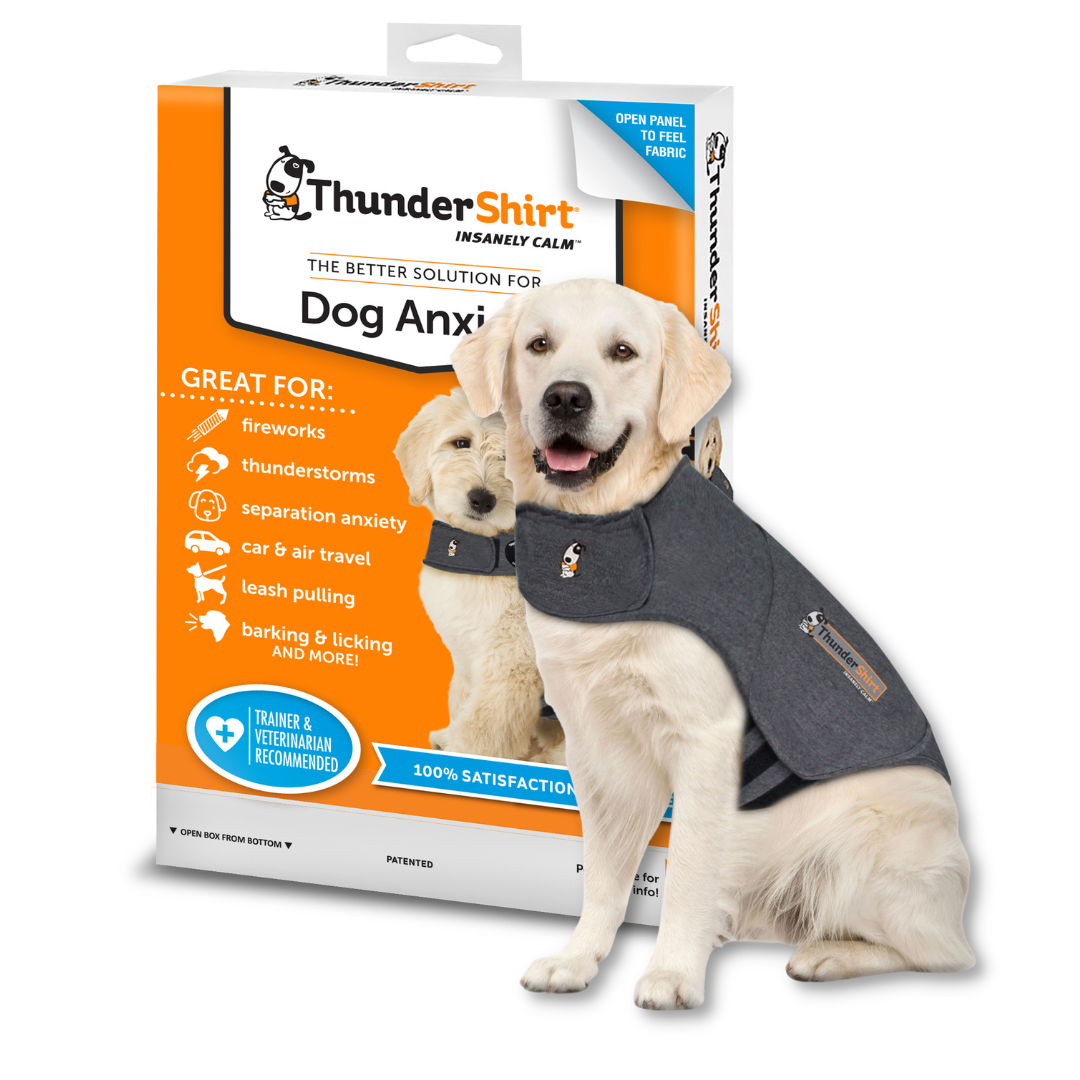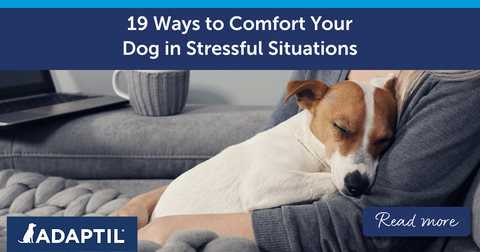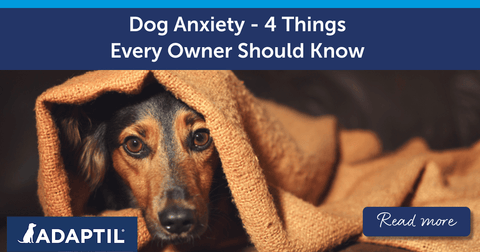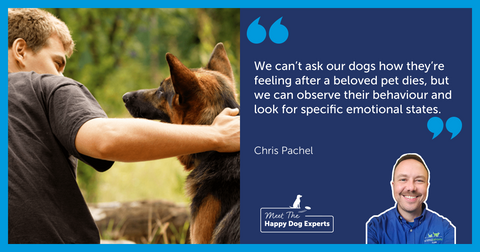Want to subscribe to our blog?

How Can You Get A Puppy to Stop Whining?
Written by Adaptil, published on April 18, 2023
Is your puppy a big noisemaker? Sometimes our pooches can be very chatty! But if your puppy regularly whines and whimpers, it can be concerning!
Dogs whine and whimper for a variety of reasons - they can be feeling anxious, stressed or may be trying to communicate something to you. It's important to understand why your pup is crying so you can get to the root of the problem!
So why might your pup be whining, and what can you do to stop them?
5 Tips to Stop Puppy Whining
1. See if your pup is lonely
If your puppy is new to your home, they may be missing their mummy dog, and brothers and sisters and feel lonely.
Try not to leave them alone too much when they first arrive in your home. Everything will be strange for them and you want your pup to be happy and comfortable! Young puppies especially, should not be left alone for long periods of time. If you must leave them alone, make sure they feel safe in their own area, with toys and food to keep them occupied.
To help your pup adapt, vary the length of time you leave them alone; starting with a short time and building it up to the whole night. Make sure you reward your pup for longer periods without whining - don't reward them (especially with attention) if they whine or bark as this will reinforce the wrong message!
2. Check for illness
Frequent whimpering could mean that your puppy is feeling poorly. If whining is accompanied by other symptoms, like loss of appetite, diarrhoea, vomiting, lethargy or if they are breathing quickly, you should get them checked out by your vet straight away.
3. Remove any stress
Stress can be indicated by a number of things, including whining. If your puppy is licking, biting or scratching an area of skin, they could also have an allergy that is making them anxious and stressed.
Try to distract your pooch and keep them calm when they are stressed, but if the symptoms persist, a visit to the vet is again recommended.
4. Distract and tire out your pup
Puppies have an amazing amount of energy! But, having so much energy means they may become bored easily - and start to whimper. Make sure you set aside regular times for puppy play and distract your pet with food toys or puzzles. Try lots of training and play sessions too, to keep your pet's brain stimulated and help them learn!
If you are both to get a good night's sleep, it's important you don't allow your pup to take a nap before bedtime. Ensure you have lots of play and exercise before bedtime and if your dog lies down in his crate or bed without any fuss, he will soon fall asleep and not have the energy to whine or whimper!
5. Check for other causes
Although it may take a little while to settle your pup and help them feel at home, they might still continue to whine or whimper, so try to figure out if anything else may be upsetting them.
Maybe your pooch needs to go to the toilet, and whining is their way of letting you know! Puppies cannot hold on for very long (about an hour longer than their age in months), so bear in mind if they whimper in the night they may just want to go outside.
Never punish a puppy for any 'accidents' they may have indoors. Like human babies, they will have mishaps! Just clean it up thoroughly and continue toilet training.
Create a Calm Environment to Stop Puppy Whining
If your puppy is stressed or unsettled, create a calm environment, and keep them occupied and focussed on something else, like a food toy. Soothing classical music can be used as a relaxing therapy for pets to relieve stress levels and help them to fall asleep.
ADAPTIL Junior can help to create a calm environment as it releases comforting messages like the ones sent by the mother dog after birth. These will naturally calm and reassure your new puppy just like when they were with their mother. Using ADAPTIL Junior is clinically proven to reduce the number of nights with puppy crying or whining. Consistency is key too; you should stick to your specific method of discipline and provide your puppy with clear instructions and routines that they can understand, learn and get used to!
Following our expert tips will help to ensure your bond with your dog goes from strength to strength.
Make sure to join our community for weekly advice from our dog behaviour experts as well as product offers and competitions.
 Related Posts
Related Posts
Legal notice The information collected is intended for Ceva Santé Animale and the group in order to manage your requests. This information can be shared with service providers in order to organize their management. In accordance with the General Data Protection Regulations, you have the right to access, rectify and limit the processing of your data. You can also, in certain cases, object to the processing, withdraw your consent and request the deletion and portability of your data. For any request in relation to your personal data, please visit this page.



































